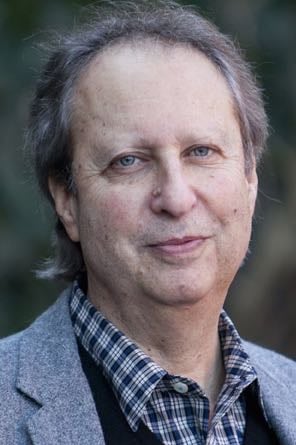Well isn't This just 'special'? Here we have a Dr who Teaches Psychiatry, and He's throwing the BS flag right on the 50 yard line.
Robert Berezin, MD
December 18, 2014
The article, “Special K, a Hallucinogen, Raises Hopes and Concerns as a Treatment for Depression,” by Andrew Pollack in the New York Times, December 9, 2014, tells how far afield my field, psychiatry, has really gone that it is even a consideration to use an hallucinogen for the treatment of depression.
Let’s start at the beginning. Depression is not a biochemical disorder. It is actually a manifestation of personality when too much anger gets directed at the self and crosses the line into a symptom. See – “No its not the Neurotransmitters, Depression is not a Biological Disease caused by an Imbalance of Serotonin.” Human suffering is not a brain problem, but a human problem. Psychotherapy addresses what ails us, not drugs. Unfortunately big Pharma and the APA have manufactured a house of cards that seems to be believed not only by most of psychiatry, but by the general public as well.
There has never been any link between the suffering of depression and biochemistry. Yes, of course, all our mental states are reflected in the brain. But they are not caused by a brain disorder. When psychotherapy addresses the salient issues, our brains then reflect a different state of mind. The brain does not lead anything. It follows.
It’s bad enough that people are subject to the SSRI’s and other ‘antidepressant’ pharmaceuticals. These are mind altering psychoactive drugs that numb and harden us. Once a person is unconflicted about being selfish and not caring, his so-called depression may seem to diminish. This is a dehumanizing process. We need to be fully human, not the other way around. Not only that, but antidepressants are very addictive. When patients try to stop the drugs, their so-called depression seems to get worse, because they are habituated to the supply of serotonin. These patients then end up believing that they truly have a brain disorder. They’ll need the drugs for life and thank god they have them.
Of course, if a patient tries to detox from the antidepressants they commonly have horrific withdrawal symptoms that are almost never publicized. An array of frightening neurological symptoms appear when trying to detox — vertigo, lightheadedness, burning or tingling sensations in the skin, difficulty with gait and balance, blurred vision, tremors, twitches and restlessness. Sometimes there are hallucinations. Patients, understandingly, get terrified from these symptoms and conclude that something really is dangerously wrong with their brain. To detox from antidepressants has to be done very carefully, under proper supervision, over the course of a year. It is bumpy and hard.
But it keeps getting worse. Eventually patients get habituated to the antidepressants. They don’t seem to be working. The supply ceases to keep them numb. They need more serotonin. The psychopharmacologists then expertly add in other antidepressants. Than maybe a benzodiazepine. Or maybe an antipsychotic. And if the ‘depression’ gets really bad, they may need to be shocked.
And now we turn to hallucinogens as one more agent to treat a synaptic-biochemical disorder that doesn’t exist? The fact that it is even a question as to whether Special K might be constructive is absurd. Dr. John H. Krystal, chairman of psychiatry at Yale and a pioneer in the study of ketamine for depression says,“ Synaptic connections that help us to cope seem to grow back.” I would be very interested in finding a synaptic connection to help us cope. Depression is not a synaptic problem in the first place. Pharmacologists have redefined the hallucinogenic effects as side effects. They say, “Pharmaceutical companies hope to solve the problem by developing drugs that work like ketamine but without the side effects, which are often described as out-of-body experiences.” This is nonsense. We are talking about a hallucinogen here. What’s next, LSD for depression?
We have a huge drug problem in the United States, both illegal and legal. Cocaine was in, disappeared, then came back with a vengeance, advertised as having no negative effects, no addiction, just a free high. Amphetamines were huge in the sixties and seventies and then fell into disrepute, only to be resurrected and promoted again for the fictitious ADHD. Marijuana is back, becoming legal, and is far more powerful and destructive especially for teenage brains. And on its heels we want to bring back the psychedelics? Hallucinogens are incredibly disruptive to the very intactness of the personality.
I never fail but to be amazed that so many people are genuinely concerned about what they eat and drink, and are careful to not put toxins in their body. And they tend to be at odds with and suspicious of huge corrupt organizations. And yet with drugs, this is completely disregarded, and people swallow what Big Pharma puts out there.
 Robert Berezin, MD
Robert Berezin, MD
Robert Berezin, MD. has been in private practice and taught psychiatry at Cambridge Hospital, Harvard Medical School, for thirty years. If you have a sense that drugs are not the answer. If you are tired of the destructive direction and misleading promises of the DSM-5, and the pharmaceutical industry. If you have the intimation that human struggle, and your struggle and pain is a human problem, not a brain disease – Dr. Berezin presents a unified field theory of human consciousness which includes psychiatry, neuroscience, dreams, myths, religion, and art. He is the author of “Psychotherapy of Character: The Play of Consciousness in the Theater of the Brain.”

No comments:
Post a Comment